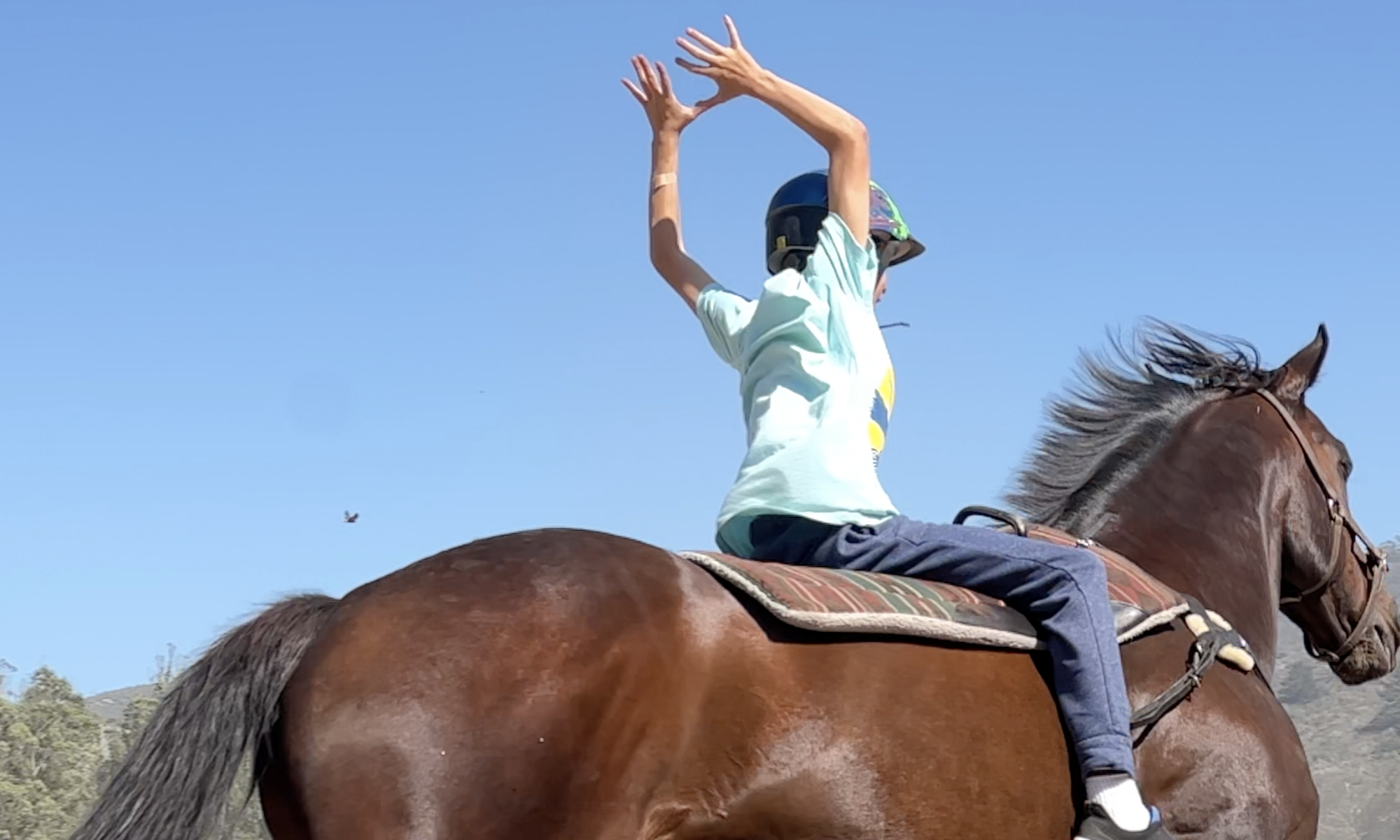The young woman throws her assistive talking device over her shoulder and marches directly to the shack where we keep the helmets, boots, games and – my favorite – hundreds of books.

From the moment we started Square Peg, I dreamed of having a room full of books with an honor system of borrowing. No check out, no due dates – just bring a book or take home 10. No worries.
Today, the shelves are bursting with colorful children’s stories, dusty outdated boxes of horse care texts, trashy adult novels and scores of self help books.
The young woman’s parents and I exchange “uh oh” looks at each other. None of us were fast enough to re-direct her march to the shack. We’d all hoped it was going to be a good riding day. The sun was out, the horse was willing, the trails called for a calming ride. We hoped it was one of those magical days with smiles and exhales and bowel regulation for this non-verbal young woman who is so often anxious and agitated.
But alas, she’s in the shack and she’s grabbing books from the shelves and throwing them onto the floor. She’s working faster and faster to grab and throw. Occasionally, she opens a book and begins to rip out the pages.
It’s distressing for the family and I have to admit that it hurts my heart to see a book rendered mostly useless after this rough treatment. But I remind myself that we have literally hundreds of books
I sit on the floor with her and open a story and I begin to read it to her. She takes it out of my hand and throws it onto the floor. She’s winding up to what we worry will be a mania that ends in crying and possibly some level of frustrated self harm.
The horse and the volunteer are waiting and we bring his patient self over to the shack and induce him to place his curious face in the doorway hoping it will delight her and cause her to choose an activity we are uniquely qualified to deliver. She pauses, looks at the horse for the briefest of moments and resumes what looks like random grabbing and throwing of books.
The horse, unlike me, has no agenda and is not offended. He happily drops his head and looks for grass to munch.
I urge myself to take a clue from our horse and drop my agenda too. Something deep in my gut tells me to stay with this young woman and watch.
Watch. She’s telling us something.
Or is she just winding up to a meltdown that will leave her and her parents exhausted?
Watch Joell. Just stay. Hold space. Breathe.
Soon, I’m not watching, my brain is wandering. I’m reviewing all the things that need doing – all the triage of my day. And then I beat myself up for that.
Watch. Stay. I have to force myself not to look at my watch. Stay. Watch.
More. books fly off the shelf onto the floor. She’s gasping for breath and clearly frustrated and I’m no closer to understanding than I was before.
Finally, the parents need to go. Another family is arriving and we begin the painful process of extricating this young woman from the shack and the giant pile of thrown books. Dad picks her up – no small feat as she’s no longer a little girl. Her eye catches a closed cardboard box up high on a shelf – she needs to see what’s inside. I know that it’s a dusty box of horse care books and veterinary manuals – not children’s reading. But she HAS TO KNOW what’s inside – which also means more books thrown onto the floor that I will need to pick up and re-shelve.
I’m human. I’m tired. So is dad and I reason with her that “it’s nothing you want.” but that’s not going to work and so I jump in the air and grab the dusty box and, as predicted, they are summarily taken out and thrown on the floor with the hundreds of others.
Feeling like a failure, I watch dad manage his now disregulated daughter toe-walking down the hill to the parking lot. She’s angry and frustrated and I’m trying to think of the role I played in that.
Later that night, I crawl into bed and crack open the novel I’m reading. I’m eager to throw off the day and settle into a story of another land, another time and place, another point of view.
Then it hits me.
That’s what this young woman was looking for. Stories give her the same pleasure they give me. She likes familiar stories – ones she knows what happens next – characters she is familiar with. She’s seeking that same deep pleasure that I, a lifetime reader crave.
She was just looking for a familiar book! A particular book that would soothe her and delight her – the same way a great story delights me.
Not finding that story was the cause of the panic. Looking desperately for a ticket away from the cacophony of a life of a sensory sensitive person who is also in the throes of puberty is as natural as sunshine – as “right as rain.”
We all seek pleasure, relief, solace. All she wanted was the book that would bring her these three things.
Wait. Watch. Breathe.
#FollowTheChild


